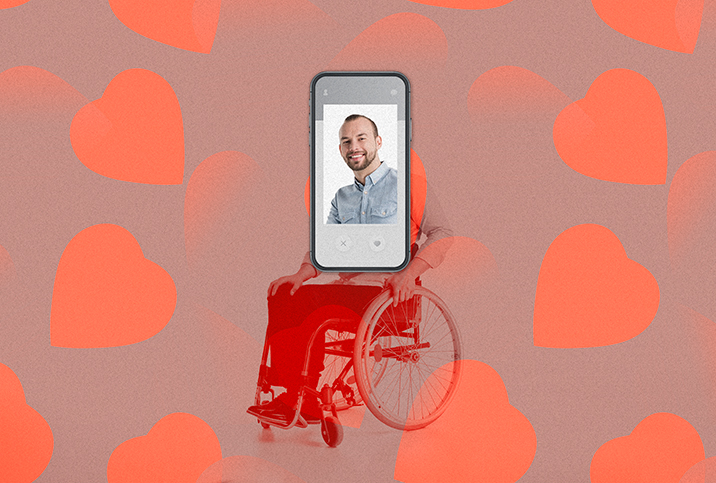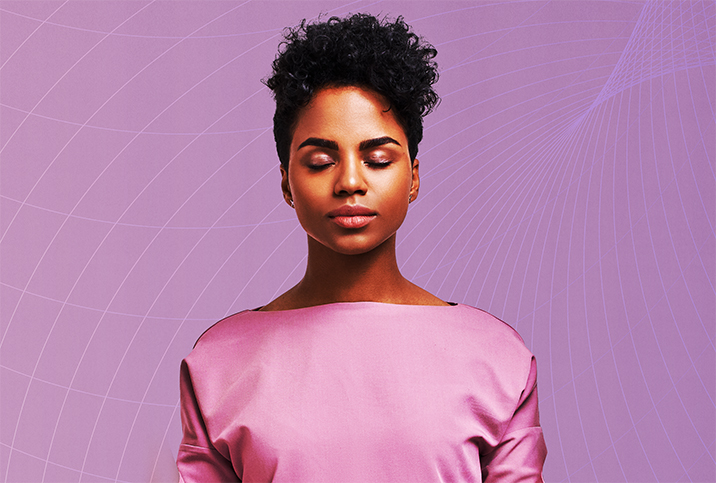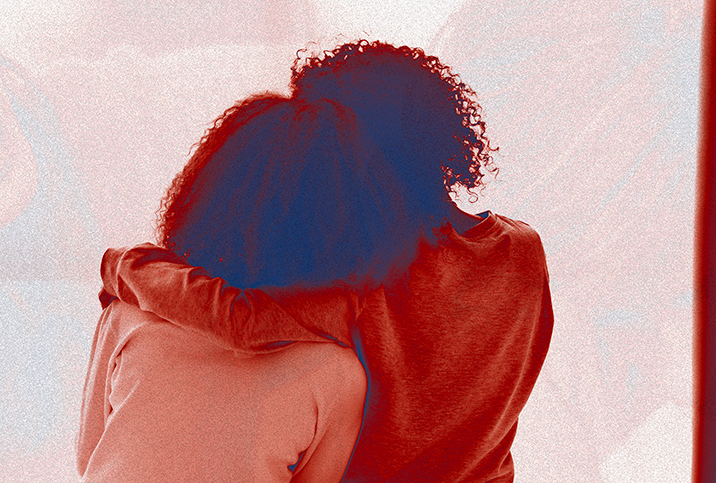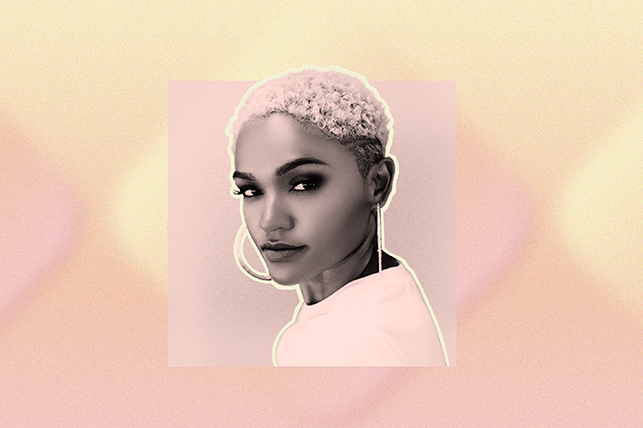1 in 4 Americans Are Disabled and They Deserve Intimate Relationships
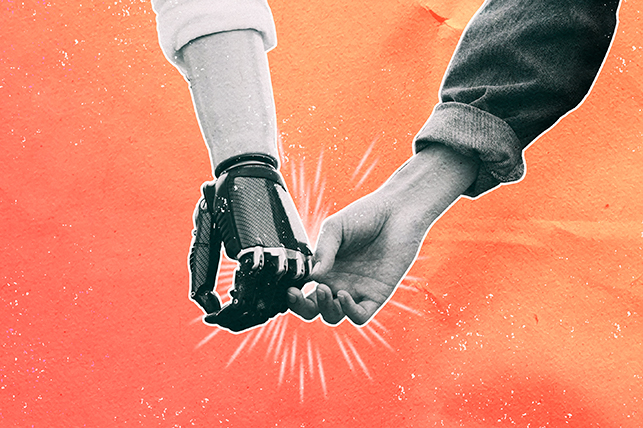
The Americans with Disabilities Act (ADA) defines a person with a disability as someone "who has a physical or mental impairment that substantially limits one or more major life activities, a person who has a history or record of such an impairment, or a person who is perceived by others as having such an impairment."
As many as 1 in 4 people in the United States have a disability, the Centers for Disease Control and Prevention (CDC) estimates. The most common type of disability in the U.S. is mobility, affecting as many as 1 in 7 adults. However, disabilities can have a physical or mental component, and given these statistics, it's likely you or someone you know lives with a disability.
It's no secret our society has a habit of branding health and wellness issues as matters of personal choice, and some people make healthier choices than others. However, in most cases, there are no "personal choices" a disabled person can make to not be disabled.
Optimal health looks different for everybody. For instance, we could all do the same exercises and eat the same foods, but we'd still have different bodies. Like health, sex and intimacy look different for everybody.
It's a common misconception that people with disabilities are unable to have fulfilling and satisfying sex lives. But they desire and deserve the same intimate experiences of life that able-bodied individuals enjoy.
"Because of the lack of representation in the media, there is a lot of ableism that still pervades our culture," explained Megwyn White, a clinical sexologist in New York City and the director of education at Satisfyer, a sexual wellness brand. "Many people assume that all disabled people have limited mobility or lack sexual desire, which is not true. These assumptions can lead to a lack of understanding and empathy toward challenges that disabled people face when it comes to sex."
There is no singular way to engage in intimacy, despite the limited views we frequently see in the media and pop culture. Let's look at some of the ways people with disabilities can enjoy intimate activities and how we can encourage cultural shifts to include them in our picture of intimacy.
It all comes down to communication
It's true for all intimate relationships: Communication and ongoing, enthusiastic consent is the name of the game. People with disabilities may experience sex and intimacy differently than what is considered "normal," so they may face a more difficult time opening up about their sexual experiences and desires.
"Often, couples who are outside what the 'standard' healthy couple looks like have a difficult time opening up about their experiences because they can feel uncomfortable, or perhaps even embarrassed, being outside of 'the norm,'" White said. "In reality, there isn't a 'norm' when it comes to a healthy and sexually active couple, as this completely varies from all aspects, such as gender, abilities, sexuality, etcetera. The best way to mitigate this internal conflict among couples is to encourage open and honest communication."
Clarisse Quirit Rella, a product testing and affiliate manager, writer and contributor at Women's Health Interactive, a nontraditional occupational therapist and a recreational therapist in Queens, New York, agreed that open communication is paramount when exploring intimacy while living with a disability.
"Let your partner know what you can and cannot do, what you like and do not like, what you are curious to try and not try, what is comfortable for you and uncomfortable," she advised.
Additionally, everyone should take note that sex isn't solely penis-in-vagina (PIV) penetration. Whatever sexual acts you're capable of and enjoy "count" as sex, and it's important society adopts this belief so disabled people, who may not be capable of PIV, can be included in the conversation.
"People can have sex in different ways, many of which may be unfamiliar to us and some ways that people might not even consider when it comes to mainstream ideas of what sexuality is," Quirit Rella said.
It's time to get creative
We've established that sex can include all kinds of activities outside of what we've learned from social conditioning. Since everyone's not capable of penetrative sex, it's important to consider other sources of pleasure. Thankfully, various inventions of modern pleasure science have been created with all levels of ability in mind.
"One of the methods that have a track record of working for the disabled community is using sexual wellness products," White said. "Sexual wellness products radically expand the possibilities of sexual play and can be used to assist in facets of arousal such as blood flow and targeted stimulation. There are so many benefits of trying sexual wellness devices as it creates more opportunity for pleasure, given the various shapes and designs of each product."
Sex toys are a great option to explore at any level of physical ability and can help people with (and without) disabilities achieve sexual satisfaction. Additionally, the use of other assistive devices, such as pillows, can make some sexual acts more comfortable for people with certain physical limitations.
"I always like to recommend adaptive equipment that can be used to enhance their sex life and sexual pleasure, such as using pillows and wedges, to name a few," Quirit Rella said. "Pillows can be placed under the legs and stomach area as well as behind the back. These offer stability and comfort to different areas of the body. Wedges also offer support, but with a firmer feel depending on the body positioning."
She also recommended roleplaying to help couples focus on their personal needs, abilities and strengths, and to create a fun atmosphere for experimentation.
"Roleplaying is also key and can help set the mood for an interabled couple," Quirit Rella explained. "Use your strengths, abilities and interests to enhance the sexual experience. Create the ambience and always communicate with each other. Redefine what sex means to you and build up that self-esteem, self-worth and confidence."
Celebrating our differences
Ableism is very prevalent in many aspects of life, which means able-bodied individuals are still often viewed as the "default" body type. We witness this every time we enter a building that has only stairs or a parking lot with one handicapped spot, or we start a new job and find they don't allow for mental health days.
A lack of understanding and empathy toward disabilities can take an emotional toll, too. Since it's very likely we all love someone, or are someone, with a disability, it's important we make a conscious effort to shift our thinking about disability in general.
"It's very important to consider the emotional challenges that can come along with disability, including issues related with self-esteem, body image or societal stigmas," White noted. "Creating a space of nonjudgment where it's OK to express concerns or challenges is vital for sexual health and well-being."
When thinking about intimacy and disability, it's crucial that we don't focus solely on what a disabled person can physically bring to the table. A disabled person's strength to be vulnerable about their own limitations is worth celebrating in itself. If we shift our thinking to view sex as a pleasurable bonding experience between humans no matter what it looks like, we can better appreciate what humans of all ability levels have to offer.
"People with disabilities have real sexual identities, needs and desires," Quirit Rella said. "The beautiful part is not focusing solely on the physical aspect of sex, but instead, the intimacy felt during a whole mind-body experience with a partner or with yourself."












